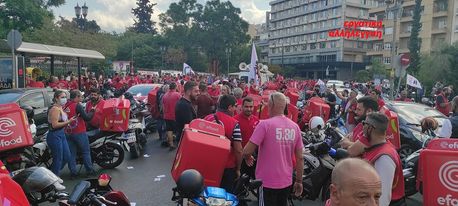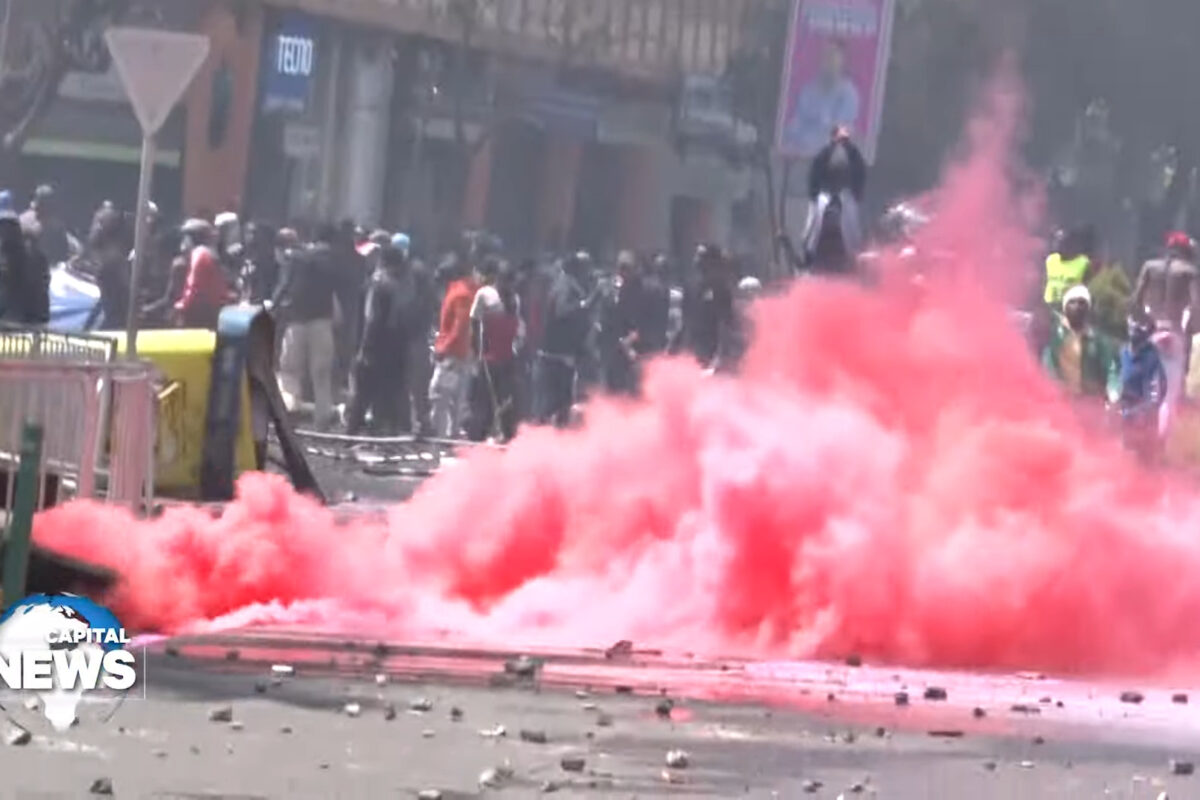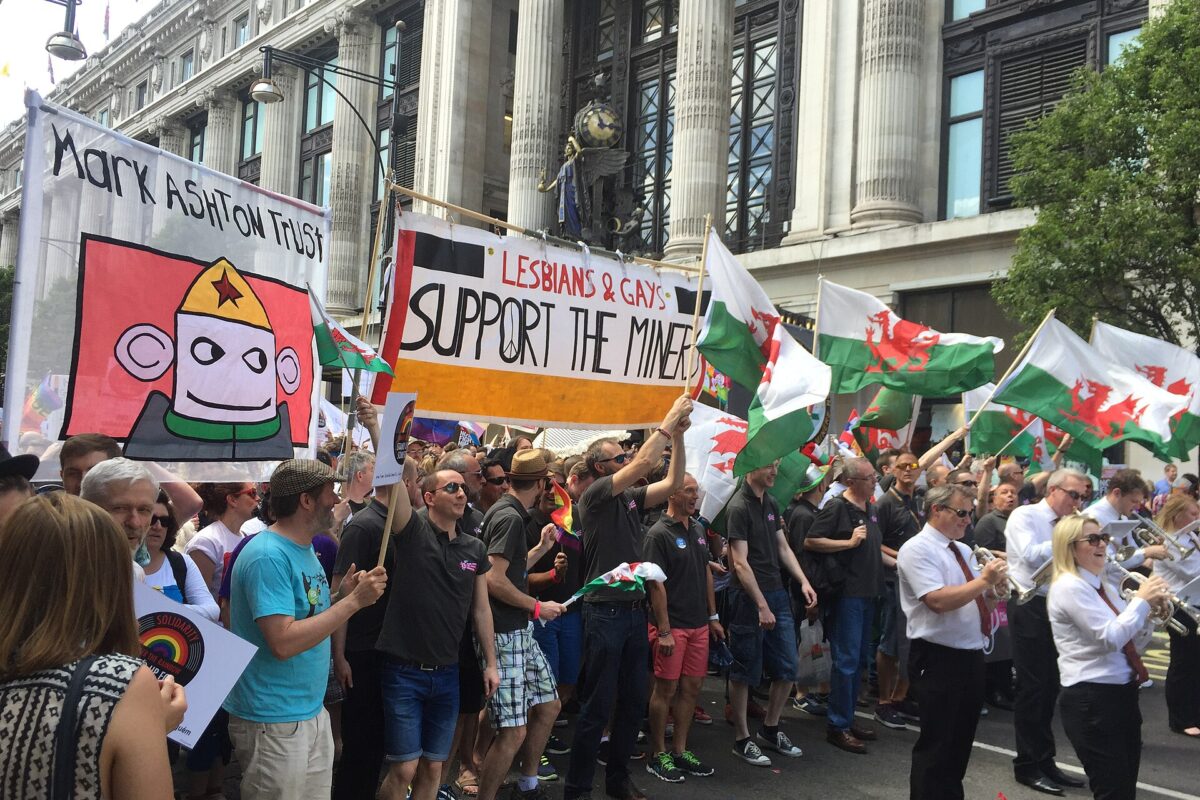This week in Greece marks a bitter anniversary. Parliamentary elections held on 25 January 2015 ended a series of right-wing governments and opened up the chance for a coalition headed by a broad left party, SYRIZA, standing on a clear mandate to “tear up” all memoranda and austerity measures imposed by the so called stabilization programs, defend the working-class and the poor and deliver democracy. That SYRIZA failed to deliver as well as spread disillusionment is beyond doubt and has been analyzed elsewhere – on this webpage as well. So where do the people of Greece stand now?
Seven years later the official picture at first glance looks rather dim. Right wing New Democracy is in office since 2019, implementing a full pro-capitalist program: Hard neoliberal measures (more austerity, job “flexibility”, confinement of trade union activity, further privatization of key sectors (ports, electricity, water-supply), and privatizing public space. It is combined with attacks on democratic rights (more police forces, “normalizing” the eternally insurgent university campuses), more institutional racism (patrol police leaving refugees to drown in the Aegean Sea), nationalism and huge arms spending. And this goes hand in hand with ideological attacks, as well as smearing the Left and any idea of socialism and solidarity as utterly bankrupt. Greek capitalists expect that their party in office can make the Greek state work for their interests. The right wing’s absolute control of mainstream media facilitates the control of public opinion so the failures of the government will never be revealed, and polls describe prime minister Kyriakos Mitsotakis as more and more popular. However this is only the surface.
Has New Democracy succeeded in its goals?
Far from the success story headlines, the Greek economy remains one of the weakest links in the EU chain, and this practically means that Mitsotakis’s government is not getting close to the end of the tunnel. On the contrary, all relieving measures taken during the pandemic by the EU institutions are coming to an end and Greece has to pay its debt, which has gone out of control.
According to the experts of the European Stability Mechanism (ESM), Greek public debt must be steadily reduced from the heights it was allowed to reach during the pandemic and this demands drastic primary surpluses for at least the next twenty years. A primary surplus isthe difference between incoming minus outcoming (expenses), without borrowing from outer sources
In 2020 Greece had the highest debt in the Eurozone as it stood at 205.65% of GDP, (followed by Italy with 155.81% of GDP). The plan foresees that in order for the Greek debt be reduced to 100% of GDP, primary surpluses of 4.5% are required for the next 20 years, while reducing it to the current threshold (60% of GDP) will require primary surpluses of 6.5% of GDP per year for 20 years! To have a sense of the scale, the previous memorandum had a surplus target of 3.5%. It is easy to see how ferocious the cuts should be in public spending in order to reach these targets! Obviously the cuts will not be implemented on arms spending, police and the notorious coastguards, but will butcher public sector wages and pensions, public health, education and social services.
Last week Athens welcomed six more Rafale combat aircrafts purchased from France, with the support of the government of Emmanuel Macron. While the airplanes were flying over Acropolis to cheering from mainstream media, everyone could make the comparisons for the cost of these political decisions to the expense of Special Care Units, hospitals and schools, not to mention inflation and soaring prices in basic goods, which are consuming wages and the living standard of the vast majority.
Additionally, one shouldn’t discount the debacle of the government’s strategy with Covid. New Democracy’s catastrophic management of the pandemic crises, in correlation with the abandoning of public health has brought Greece to the top in mortality figures within the E.U.
These are only a few aspects of the right wing attacks and failures. Corruption, scandals and institutional sexism is everyday practice of New Democracy. So there is a legitimate question: Are these policies tolerated by the Greek people? The answer is that there has been resistance from the first day of Mitsotaki’s government.
Who’s afraid of the working class?
“Dear Rider, in the context of increasing fleet productivity and according to the company’s broader strategy, we would like to propose you to join the freelancing partnership scheme… We would like to continue our cooperation, but based on the above and on your batch (resulting from various factors), we consider that it would be better for you to continue working as a freelancer… In other case, we would like to inform you that there is no possibility of renewing the existing contract…”
This message was sent via sms to 115 delivery workers of efood , the country’s biggest online delivery company (subsidiary of German “Delivery Hero”), on 15 September 2021. Until then, efood employees had enjoyed full insurance, paid holidays, allowances, night shift and public holiday bonuses, as well as 15% of their basic salary for the operation and maintenance of their self-owned two-wheeled vehicles. This was stipulated by Law 4611/2019, which was won through the motorcycle riders union’s struggles and the support of thousands of workers, culminating to a magnificent strike in April 2019. But the newly voted “Chatzidaki’s law” on labor affairs, named after the notorious right-wing minister who compiled it, opened all possible ways for scraping such achievements.
What was amazing was not the attack but the response from the workers of efood and the Greek society. Right after receiving the message, there were strike announcements from both trade unions in charge (Tourism, Catering and Motorcycle delivery riders – ΣΒΕΟΔ), despite their political differences. Within hours from the news hitting social media, a number of efood clients estimated between 100,000 and half million cancelled their subscriptions and uninstalled the app, while social media was flooded with denouncements of efood and with solidarity to the workers. Two days later the management of the company made a public statement, apologizing for a “misunderstood statement” and clarifying that nothing will be changed in the contracts and conditions of work. It was a humiliating defeat with strong conclusions: It showed that the bosses are not all-powerful, that reactionary laws may be voted on in parliament but can be cancelled in the streets. In addition, it refuted popular theories (even within the Left) about the weakness of the new “precarious” workers to organize and resist, about “great walls” dividing the working class. Not only did efood workers win, but their victory put pressure on the rest of delivery companies to offer full contracts and benefits to their crew. And the thousands of people who suspended their accounts did so as co-workers and fellows and not as consumers, their power lay in solidarity and that was a message of hope for everyone.
Efood is not a unique story. One month later it was the turn of the workers of COSCO, the Chinese giant which has purchased the port of Piraeus after its privatization. In the afternoon of Monday, 25 October 2021, Dimitris Danglis, a 45-year-old worker of subcontractor company DPort encountered a horrible death on his counter shift – a shift following a 12-hour shift with an 8-hour break. He got trapped on the rails of a travelling crane, which evidently ran over him. The response from the trade union ENEDEP was immediate, calling a general 24-hour strike from midnight that Monday and a rally the next morning at the gate of the Container Terminal. Following a powerful strike that shut down the port for seven consecutive days against intensified work and inadequate safety measures, COSCO was forced to sit at the table to negotiate. They committed themselves in writing to the abolishment of inhumane “counter shifts”, as well as to the formation of a Health and Safety Committee with the participation of members of the union. They also recognized the union officially.
During those days, in addition to the daily assemblies, large mobilizations and marches took place with the participation of unions all over the country: at the Port, at COSCO headquarters, at the Ministry of Maritime affairs and at the Courts. The Piraeus Port Workers’ Union held a support strike, the Piraeus Labour Centre organized a solidarity event and a mobilization at the Ministry of Labour, while the Tourism and Catering Trade Union cooked in solidarity with the strikers at the port.
Resistance is here
What happened with efood and COSCO is only a sample of resistance from below, from the almost forgotten sections of the working class, and is only a part of the picture. The overall sheet of balance has been shaped by strikes and working class militancy which, despite bureaucratic maneuvers from the trade union leadership has never ceased to resist measures of the government. The workers in public health have been on the front lines since the outburst of the pandemic to defend health care for all, challenge the cuts and demand new jobs instead of redundancies. Art workers, despite being scattered across numerous workplaces came to protests and succeeded in obtaining compensations for all during the lockdowns.
This is where inspiration for younger sections of the working class to come out and fight originates, as well as from a long record of political struggles against racism and fascism, and from protests for democratic rights.
Opposition?
Under such circumstances of discontent and polarization it was expected that the opposition would grasp the chances to challenge the hegemony of New Democracy and propose an alternative. Unfortunately, the parties in the parliamentary opposition have so far failed to do so. The main reason is that no party wants to stand for an angry working class and take the risk to commit to a break with the bosses. This includes SYRIZA, which is the main opposition party, and also PASOK, the socialist party that governed Greece for almost two decades in the 1980s and 1990s.
For Alexis Tsipras, the main concern is to appear as a “responsible” political force, one that will not challenge the interests of Greek capitalism. The “lesson” from last time in office is that despite SYRIZA’s U-turn and compromises, its government still never had the support of the Greek ruling class and media moguls. Although the establishment was relieved at Tsipras’ capitulation to memoranda and the exhaustion of people’s anger, they slaughtered SYRIZA as incompetent and unstable and clung to their traditionally favorite party, New Democracy. So the reformist strategy now is not a militant opposition, but instead to let the government rot and disintegrate by itself, leaving a gap for SYRIZA to come back and fill.
The effects are disappointing: SYRIZA has fully conceded to the “national” strategy of pursuing Greece’s geopolitical interests against Turkey, including arms spending and dangerous war rehearsals. Under the same “responsible” pretext they tolerated New Democracy’s failure with the pandemic. Tsipras recently expelled an MP from the party, for calling the government “killers”, on the ground that this is not the time for populism! This policy only legitimizes New Democracy and blurs the lines that separates it from SYRIZA.
Consequently, the party’s orientation has been set towards the centre left, targeting cadres who had left social democratic PASOK after the latter’s electoral collapse. Even the party’s name has been updated to “SYRIZA – Progressive alliance” to suit the new priorities. Inside this peculiar constellation, the left fraction, namely “Umbrella” is a confused versatile minority. But it seems that SYRIZA’s further approach to social democracy benefits its official political expression, PASOK, and introduces another vicious circle of right-wing shift.
In the last weeks a lot has been written about PASOK’s comeback following the election of a new leader, N.Androulakis, after the sudden death of center-left president F.Gennimata. Asked about participation in a future coalition government, the new leadership would not put its cards on the table, obviously waiting for the winner between New Democracy and SYRIZA! Needless to say that PASOK’s new face, despite efforts to appeal to the followers of “old good social democracy”, lacks serious bonds with the working class and its organizations. Oscillating between left and right will not do any good to rebuild them. However, in the context of New Democracy’s failure and SYRIZA’s pale opposition, there is some space for PASOK, who would like to follow the SPD’s example without having their roots as deep in society.
What now?
While this article was being written a snow storm hit Greece, resulting in horrible chaos in transport electric supply, and public safety. Cars were trapped on motorways and people were freezing out there, while it took half a day for the government to …call for the army to help remove the snow. This once more exposed the incapacity of New Democracy. The dominant slogan in the streets is “Mitsotaki fuck off!”, and this is a sign that the people are angrier and more radicalized than the parties that represent them, at least inside the parliament. It is also a call for the political organizations to the left of SYRIZA, including the anticapitalist left, to support and give expression to this potential, and not just wait for the “correct vote” in the next elections, because it might be too late. The time for getting rid of the government and halting its catastrophic plans is now, and this could be the real vindication for our struggles.




